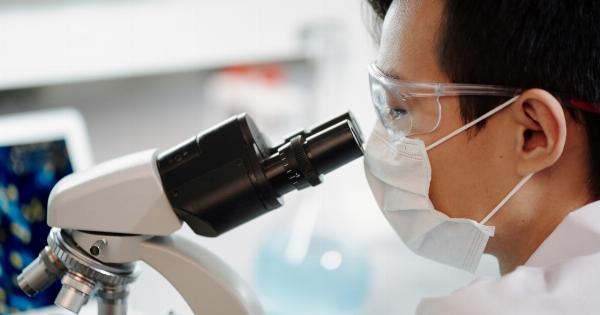The human gut is home to millions of bacteria, known as gut microbiota, which play a critical role in digestive and immune functions.
The gut microbiota is also involved in various metabolic processes and has a profound impact on overall health and disease development. Recent studies have shown a strong association between certain bacteria species in the gut and the development of colon cancer.
This article explores how colon bacteria contribute to the formation of cancer and highlights preventive measures to mitigate the risk of this deadly disease.
What is Colon Cancer?
Colon cancer, also known as colorectal cancer, is a type of cancer that affects the colon and rectum. It is the third most common cancer worldwide and the second leading cause of cancer deaths in the United States.
The risk of colon cancer increases with age, and people above the age of 50 are at higher risk of developing this disease. Genetics, lifestyle factors, and various environmental factors also contribute to the development of colon cancer.
Role of Gut Microbiota in Colon Cancer Formation
The gut microbiota is essential for maintaining a healthy digestive system and plays a critical role in various metabolic processes. However, an imbalance in the gut microbiota, also known as dysbiosis, can have detrimental effects on overall health.
Recent research has shown a strong association between specific bacteria species in the gut and the development of colon cancer. This is because certain bacteria species produce harmful compounds that damage the DNA, which can lead to cancer development.
Types of Bacteria Involved in Colon Cancer Formation
Some of the bacteria species associated with colon cancer include:.
- Fusobacterium nucleatum: This bacterium is commonly found in the oral cavity and is associated with various oral diseases. Recent studies have shown that F. nucleatum is also present in colon tumors and plays a critical role in tumor growth and metastasis.
- Bacteroides fragilis: This bacterium is commonly found in the gut microbiota and is associated with various inflammatory diseases. Studies have shown that B. fragilis produces toxins that promote tumor growth and inflammation, leading to the development of colon cancer.
- Escherichia coli: This bacterium is commonly found in the gut and is associated with various gastrointestinal diseases. Studies have shown that some strains of E. coli produce a toxin called colibactin, which can cause DNA damage and promote the development of colon cancer.
How Colon Bacteria Contribute to Cancer Formation
Colon bacteria contribute to cancer formation by producing harmful compounds that damage the DNA and promote inflammation. Some of the mechanisms through which colon bacteria contribute to cancer formation include:.
- Production of carcinogenic metabolites: Certain bacteria species produce harmful metabolites, such as secondary bile acids and polyamines, which are known to promote tumor growth and DNA damage.
- Promotion of inflammation: Dysbiosis in the gut microbiota can lead to the overgrowth of certain bacteria species, leading to chronic inflammation. Chronic inflammation has been shown to promote tumor growth and metastasis.
- Induction of DNA damage: Some bacteria species produce toxins that directly damage the DNA, leading to mutations that promote cancer development.
Preventive Measures for Colon Cancer
Preventing colon cancer involves making lifestyle changes that reduce the risk of developing this disease. Some of the preventive measures for colon cancer include:.
- Eating a healthy diet: A diet rich in fruits, vegetables, whole grains, and lean proteins can help reduce the risk of colon cancer.
- Exercise regularly: Regular exercise can help reduce the risk of colon cancer by improving overall health and reducing inflammation in the body.
- Avoid smoking and excessive alcohol consumption: Smoking and excessive alcohol consumption increase the risk of various cancers, including colon cancer. Reducing or eliminating these habits can help reduce the risk of colon cancer.
- Undergo regular screenings: Colon cancer screening tests can help detect early stages of the disease when it is easier to treat and cure.
- Use antibiotics judiciously: Overuse of antibiotics can disrupt the gut microbiota and lead to dysbiosis, increasing the risk of colon cancer.
Conclusion
The gut microbiota plays a crucial role in overall health and disease development. Dysbiosis in the gut microbiota, characterized by an imbalance in specific bacteria species, can have detrimental effects on overall health.
Recent research has shown a strong association between specific bacteria species in the gut and the development of colon cancer. Therefore, preventive measures, such as a healthy diet, regular exercise, and avoiding smoking and excessive alcohol consumption, can help reduce the risk of colon cancer.
It is also important to use antibiotics judiciously to avoid disrupting the gut microbiota. Early detection and treatment through regular colon cancer screening tests can help prevent this deadly disease.































